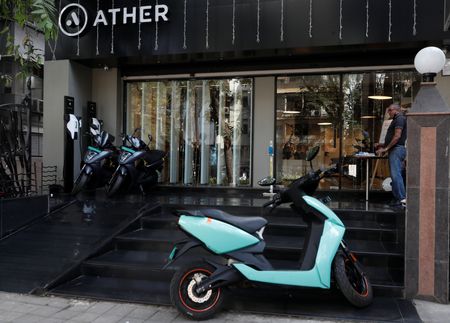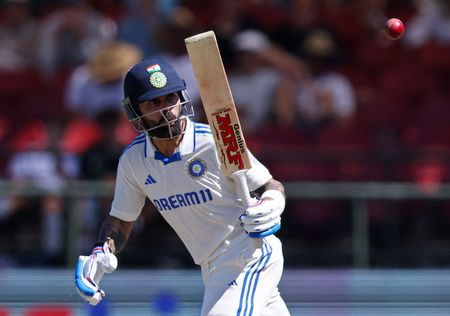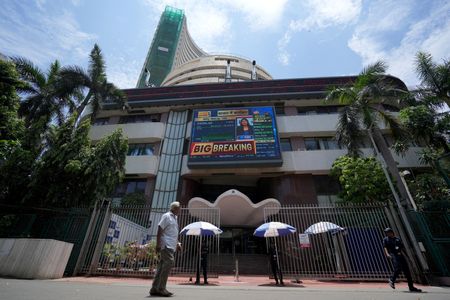By Nandan Mandayam
(Reuters) -Indian e-scooter maker Ather Energy, founded in 2013, reported a smaller full-year loss for the first time ever on Monday, as strong demand for its ‘Rizta’ scooter and lower unit costs boosted margins.
Ather started selling e-scooters in 2018, becoming a pioneer in the Indian market, but has since fallen behind Ola Electric and legacy rivals, who are better funded and have a wider distribution network.
The company, which debuted on the stock market last week, has sought to close the gap with the launch of the more family-oriented ‘Rizta’ and by using its engineering heft to lower costs.
That helped its net loss narrow to 2.34 billion rupees (about $28 million) in the fourth quarter, from 2.83 billion rupees a year ago. Its full-year loss shrank to 8.12 billion rupees from 10.6 billion rupees.
“Our reduction of losses and improvement of margins have happened on the back of our focus on software and a strong R&D-led cost reduction,” CEO Tarun Mehta said.
Mehta, who has referred to Ather’s e-scooters as the “Apple of electric two-wheelers”, said the company could achieve profitability “at a lower scale than some of our peers.” He did not give details or a timeline.
Its closest rival, Ola Electric, is also posting losses, while legacy two-wheeler companies, including market leader and Ather’s biggest shareholder Hero MotoCorp, do not give separate results for their electric vehicle sales.
Strong demand for the ‘Rizta’ helped Ather’s fourth-quarter revenue increase 29%.
The company hopes the ‘Rizta’ and other launches will help it expand in north and west India, and is backing its R&D prowess to cut production costs.
This, said Mehta, has already helped Ather cut full-year unit costs by nearly 20%, leading to adjusted gross margin, including government subsidies, doubling to 19%.
Ather’s earnings margin before interest, taxes, depreciation and amortisation (EBITDA) margin improved to negative 23% from about negative 36%. ($1 = 84.8270 Indian rupees)
(Reporting by Nandan Mandayam in Bengaluru; Editing by Mrigank Dhaniwala, Varun H K and Savio D’Souza)







